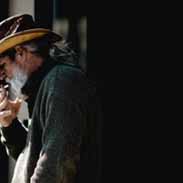APUSH: Chapter 4: "Slavery, Freedom, and Struggle for Empire to 1763."
Unlock all answers in this set
Unlock answersquestion
Middle Passage
answer
The route form which slaves were taken from Africa to the West Indies; very inhumane passage for the most part with slaves packed in together and treated as if it didn't matter if they died
question
Triangular Trade
answer
Commerce between America, the West Indies, and Africa consisting of slaves and goods (sugar, rum, and molasses); began the growth of commerce in colonial America.
question
Creole
answer
Mix of black and white.
question
Task System
answer
Task (rice culture): The sleeves were assigned one task in the morning in freedom after completing the job
question
Gullah
answer
A hybrid of English and African tongues; reinforced slaves' sense of connection with their African ancestry and allowed them to talk with their masters understanding.
question
Georgia/Oglethorpe
answer
Founded by James Oglethorpe, border against the Spanish (Florida), and a haven for the debtors and poor. originally, it excluded slaves, Africans and Catholics
question
Stono Rebellion
answer
1739, slave revolt by 100 slaves who seized weapons, killed several whites, and tried to escape to Florida; This was the most important of the slave revolts.
question
Republicanism
answer
Meant a government without a king. Celebrated active participation in public life by economically independent citizens as the essence of liberty. Assumed that only property-owning citizens possessed \"virtue.\"
question
Deference
answer
Submitting to authority.
question
Salutary Neglect
answer
British relations with the Americans - they avoided strict enforcement of laws UNTIL they started taxing (1763)
question
Zenger Trial
answer
One of the most famous colonial court cases involving freedom of the press demonstrated that popular view opposed prosecutions for criticism of public officials. Wrote about governor corruption, influence peddling, and tyranny. Zenger was not found guilty.
question
The Enlightenment
answer
A great upheaval (mid 1600s to the late 1700s) of the culture in the colonies in scientific and intellectual ways; It helped to undermine the power of traditional authority.
question
The Great Awakening
answer
The 1st big American revival, started because of concerns about declining piety lasting form the 1730s to about 1750; This changed aspects about Christianity in colonial America.
question
George Whitfield
answer
Powerful open-air preacher & an associate of the Wesleys made several evangelizing tours through colonies + drew tremendous crowds - lead to the Great Awakening.
question
Jonathan Edwards
answer
Great Awakening preacher who was a deeply orthodox Puritan with highly original theology. He attacked the doctorines of easy salvation, but preached predestination, sovereignty of God, and told vivid descriptions of hell that terrified listeners.
question
How did African slavery differ regionally in 18th century North America?
answer
African slavery was largely regionalized in the 18th century North America. Slavery was largely rejected by the North and was eventually banned but the South favored it because of its cheap labor.
question
What factors led to distinct African-American cultures in the 18th century?
answer
The harsh living conditions, low birth rate, and seldom contact with whites caused African-American cultures to be distinctively different.
question
Using 18th century concepts of Republicanism, who had the right to vote in the British colonies and how were these restrictions justified?
answer
Determined by wealth. Property-owners should vote. Ben Franklin wrote \"only a virtuous people are capable of freedom.\"
question
How did the Great Awakening challenge the religious and social structure of British North America?
answer
The Great Awakening challenged religious and social because it was attempting to use these things for profit. Ministers were claiming to be able to free people from sins if they donated enough money to the church; this caused the church to become very corrupt. The old light and new light created a gap between the English and the Americas.
question
Chesapeake and North Carolina
answer
Major Economy: Tobacco Dominant Labor Force: Smaller plantations with substantial master-slave contact.
question
South Carolina and Georgia
answer
Major Economy: Rice and indigo Dominant Labor Force: Large plantations with intensive slave labor.
question
Middle Colonies
answer
Major Economy: Large-scale farms, family farms, urban trade, and commerce. Dominant Labor Force: Indentured servants on large farms. Urban laborers and artisans.
question
New England
answer
Major Economy: Family farms. Urban trade and commerce Dominant Labor Force: Family members on farms. Urban laborers and artisans.
question
New Spain
answer
Major Economy: Large-scale agriculture. Cattle raising. Dominant Labor Force: Native Americans attached to lands.
question
The Middle Ground
answer
Along western borders of English settlement, Europeans and Indians lived together in regions in which neither side was able to establish clear dominance. Conformed to one and other, ended when English settlers took over, unable to continue French ways, and subjugated (conquer) Indians.
question
Albany Plan of Union (1754)
answer
Proposal to unify a government of 13 colonies by Benjamin Franklin; would have a president general and grand council legislature -- but NO colony approved it
question
Peace of Paris (1763)
answer
Ended the 7 year war, it was when George III ascended (took over) the throne and fired William Pitt. British gained the French lands in America & agreed to protect Catholics in America.
question
Pontiac's Rebellion
answer
An Indian uprising after the French and Indian War, led by an Ottowa chief named Pontiac. -They opposed British expansion into Ohio Valley and destroyed British forts in the area. The attacks ended when Pontiac was killed.
question
Proclamation of 1763
answer
After conflicts with Indians, it prohibited settlers to go past the Appalachian Mountains. London controlled the western movements of whites - failed to meet Indian expectations.



